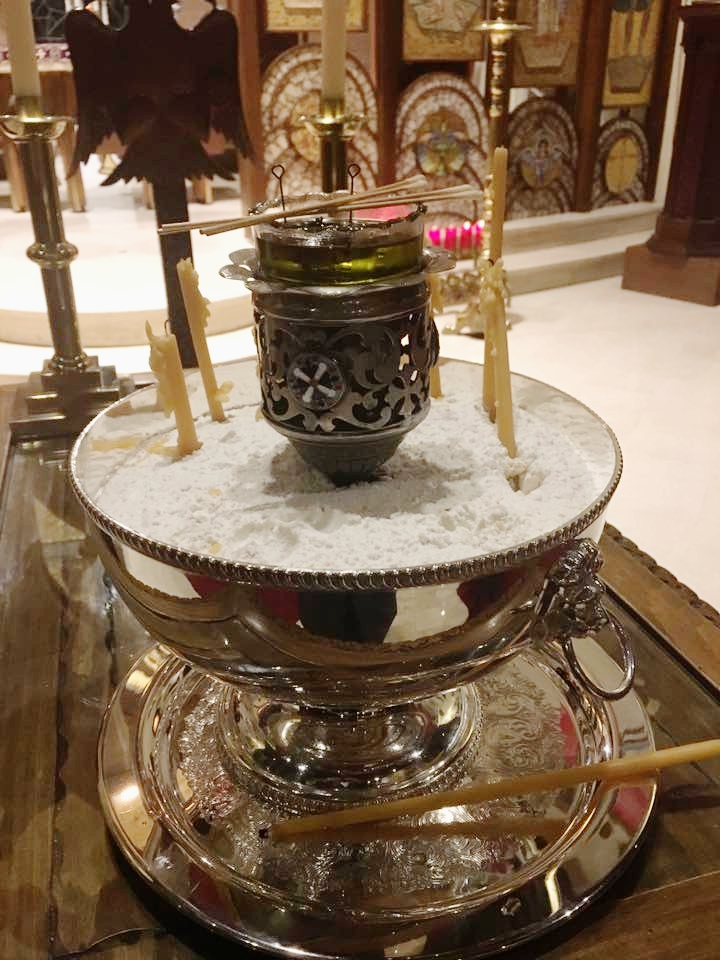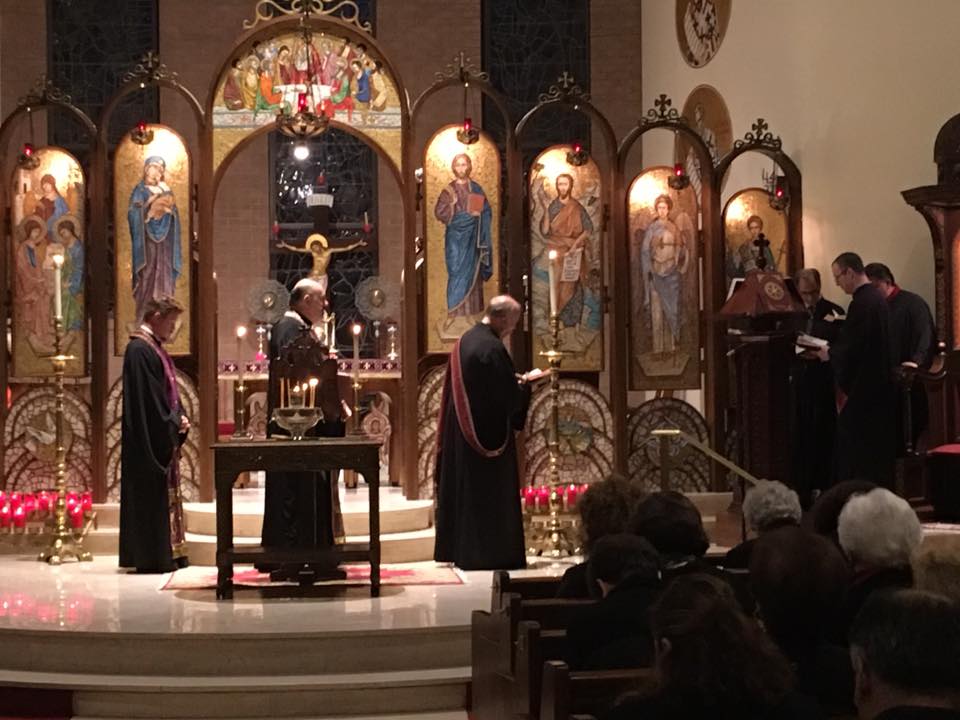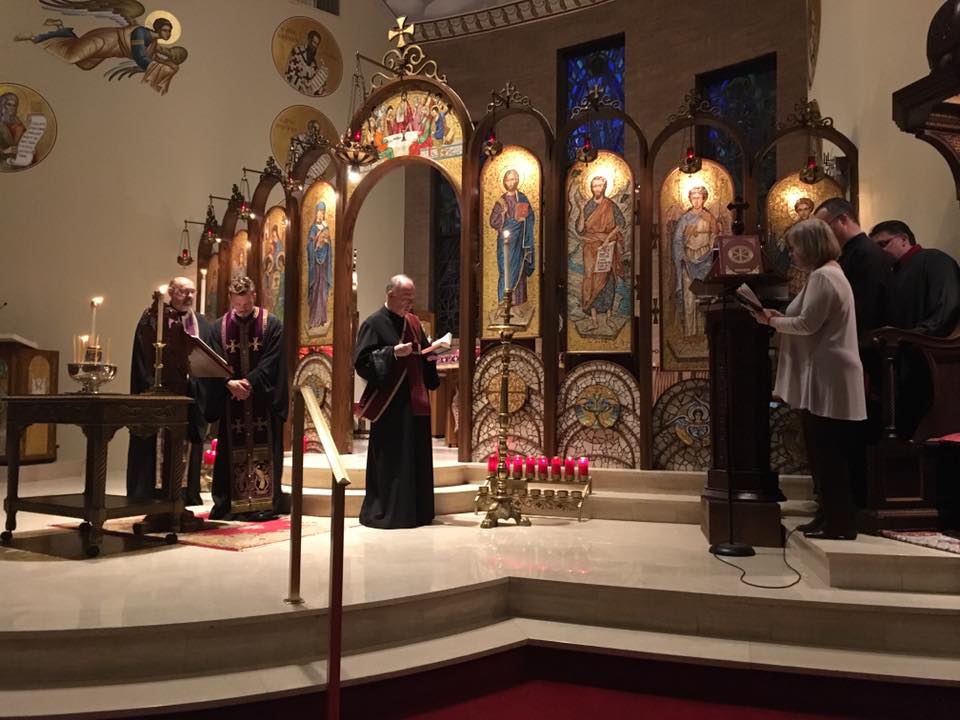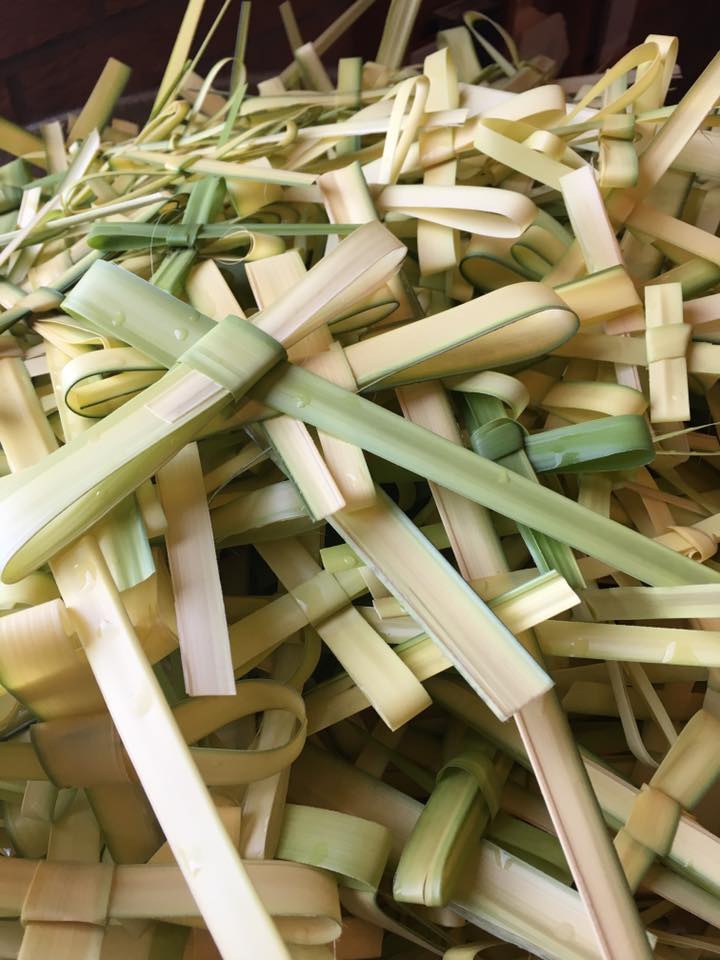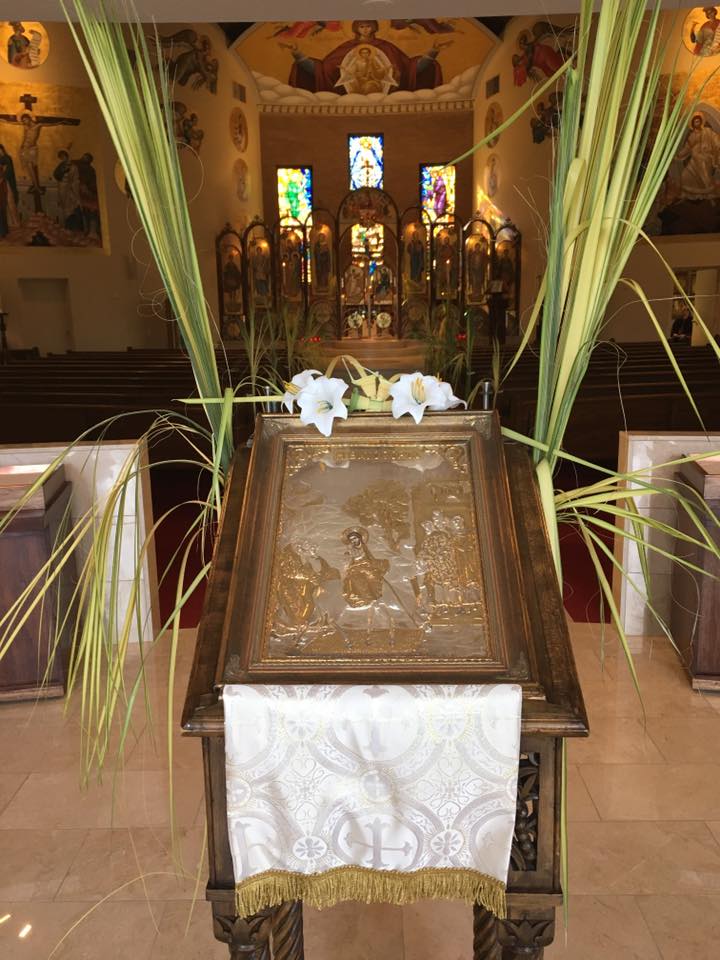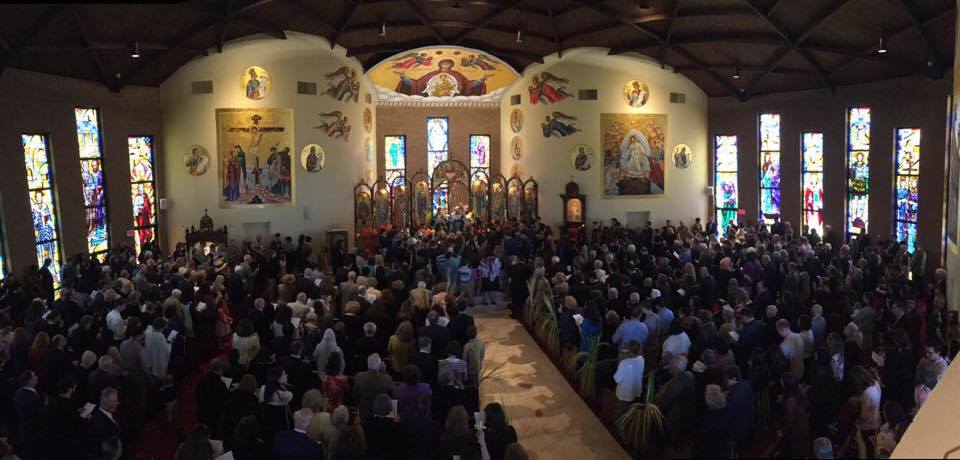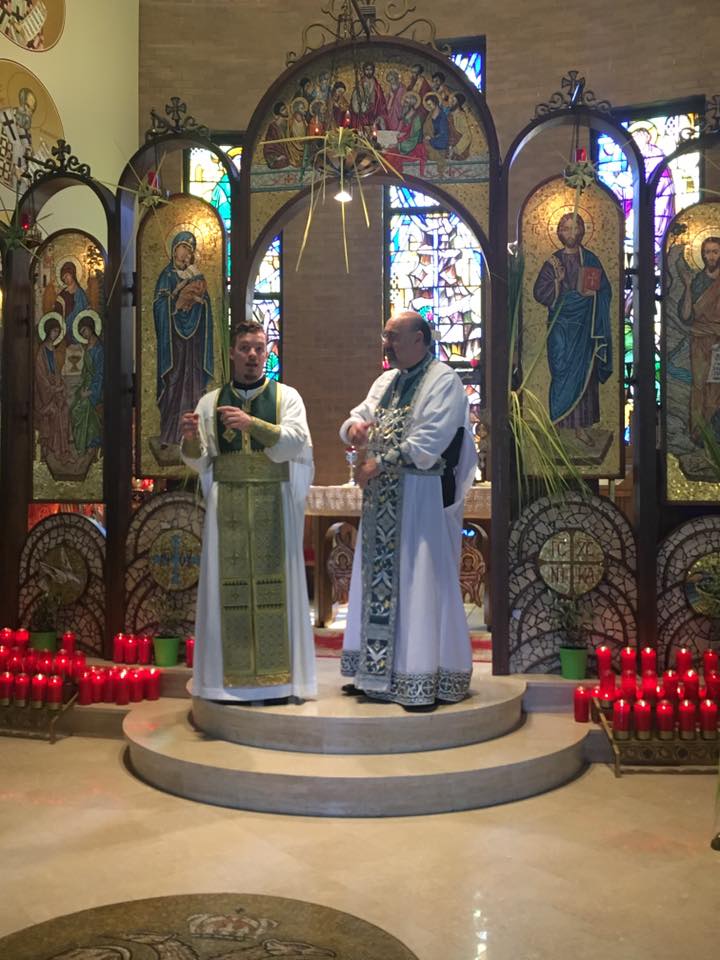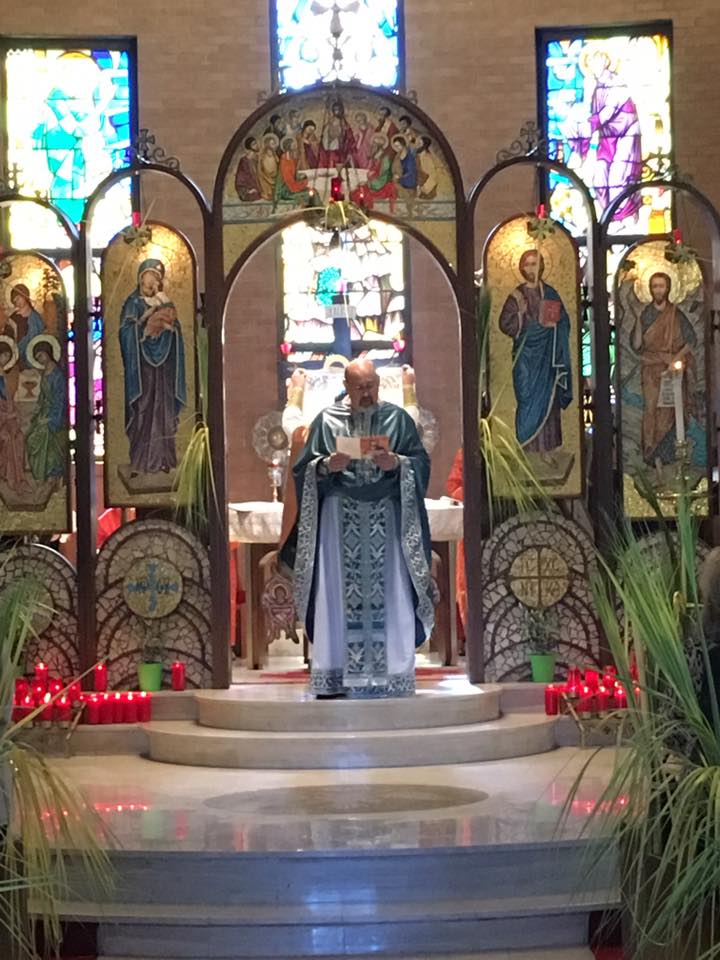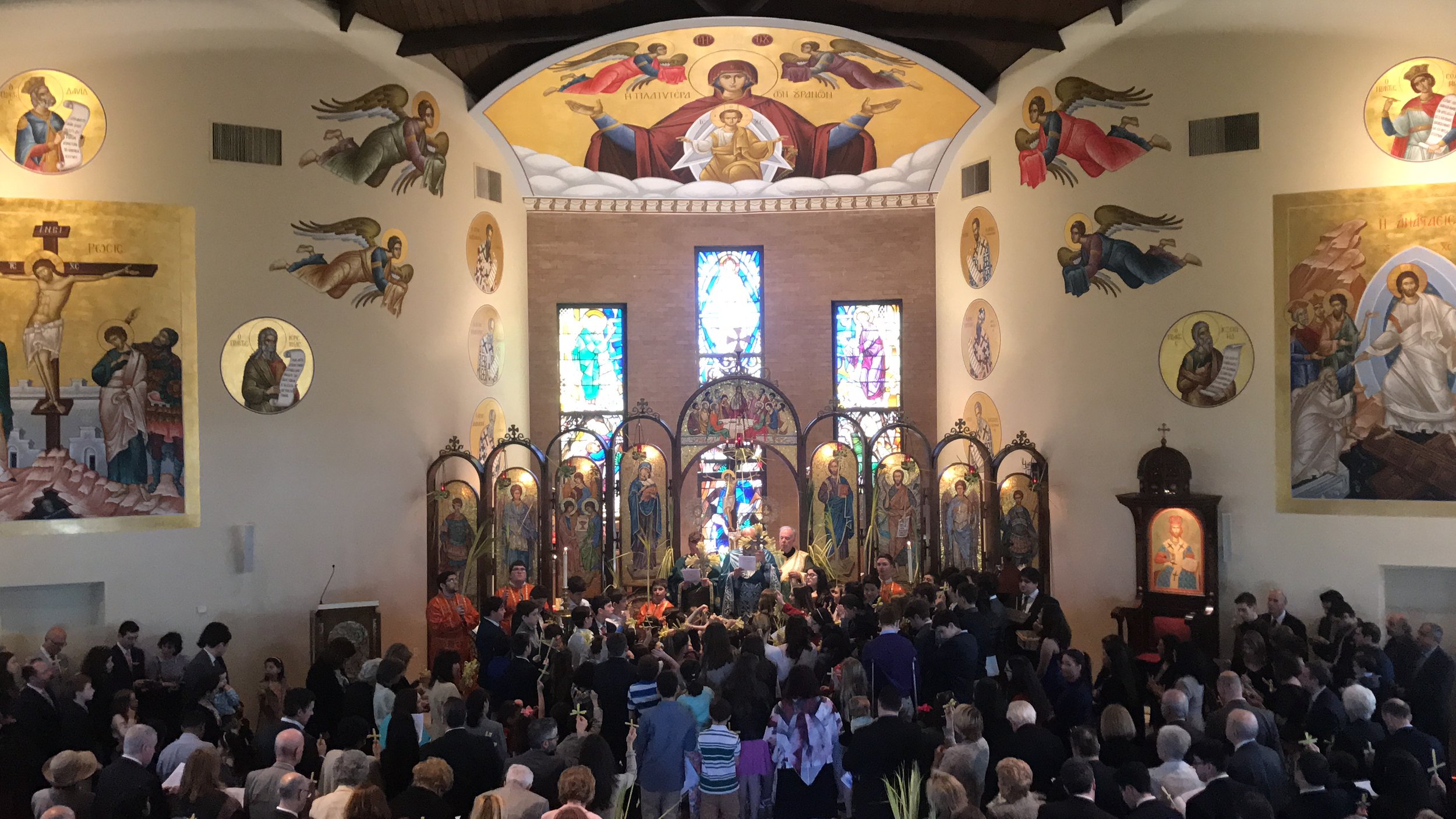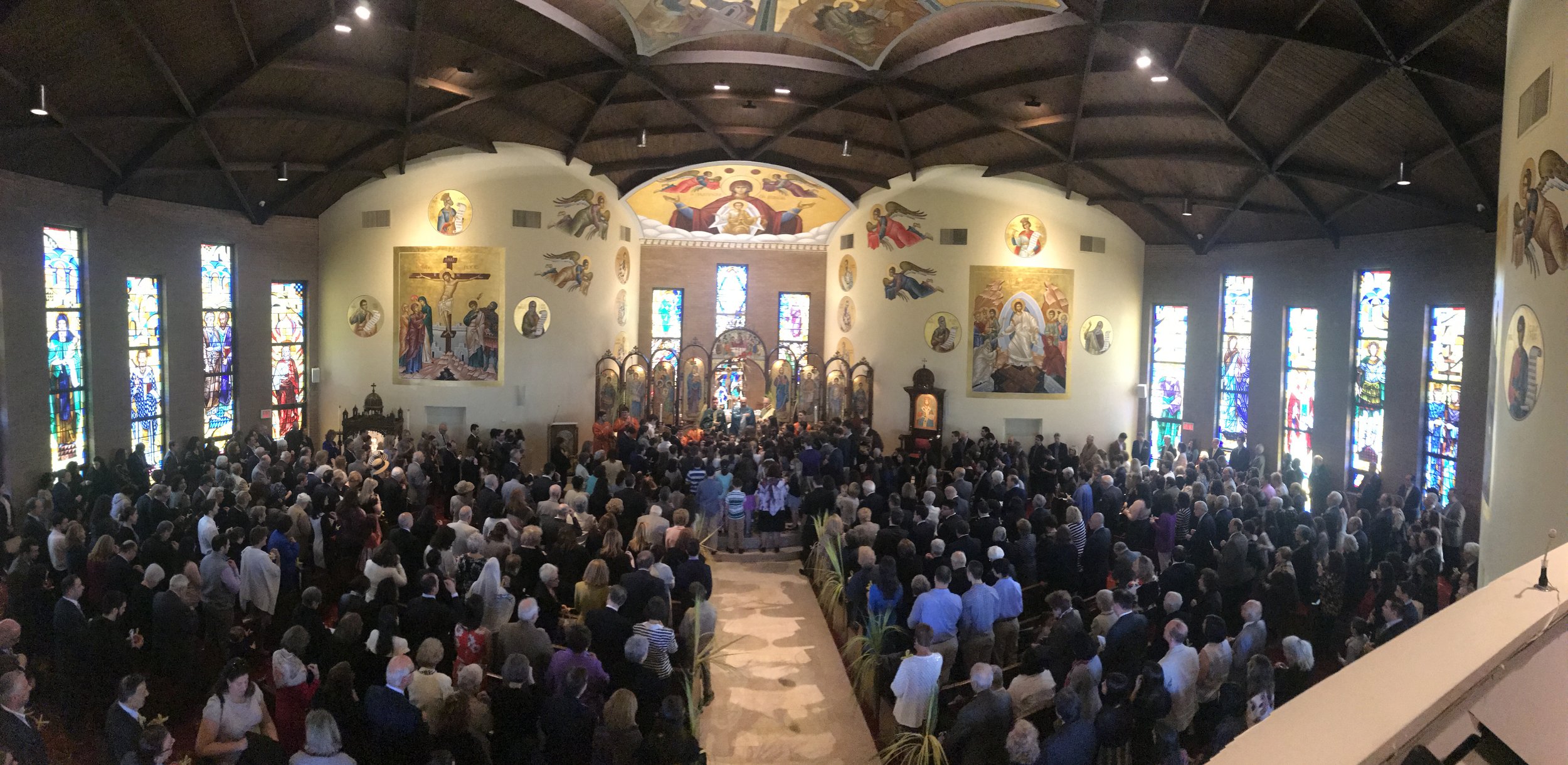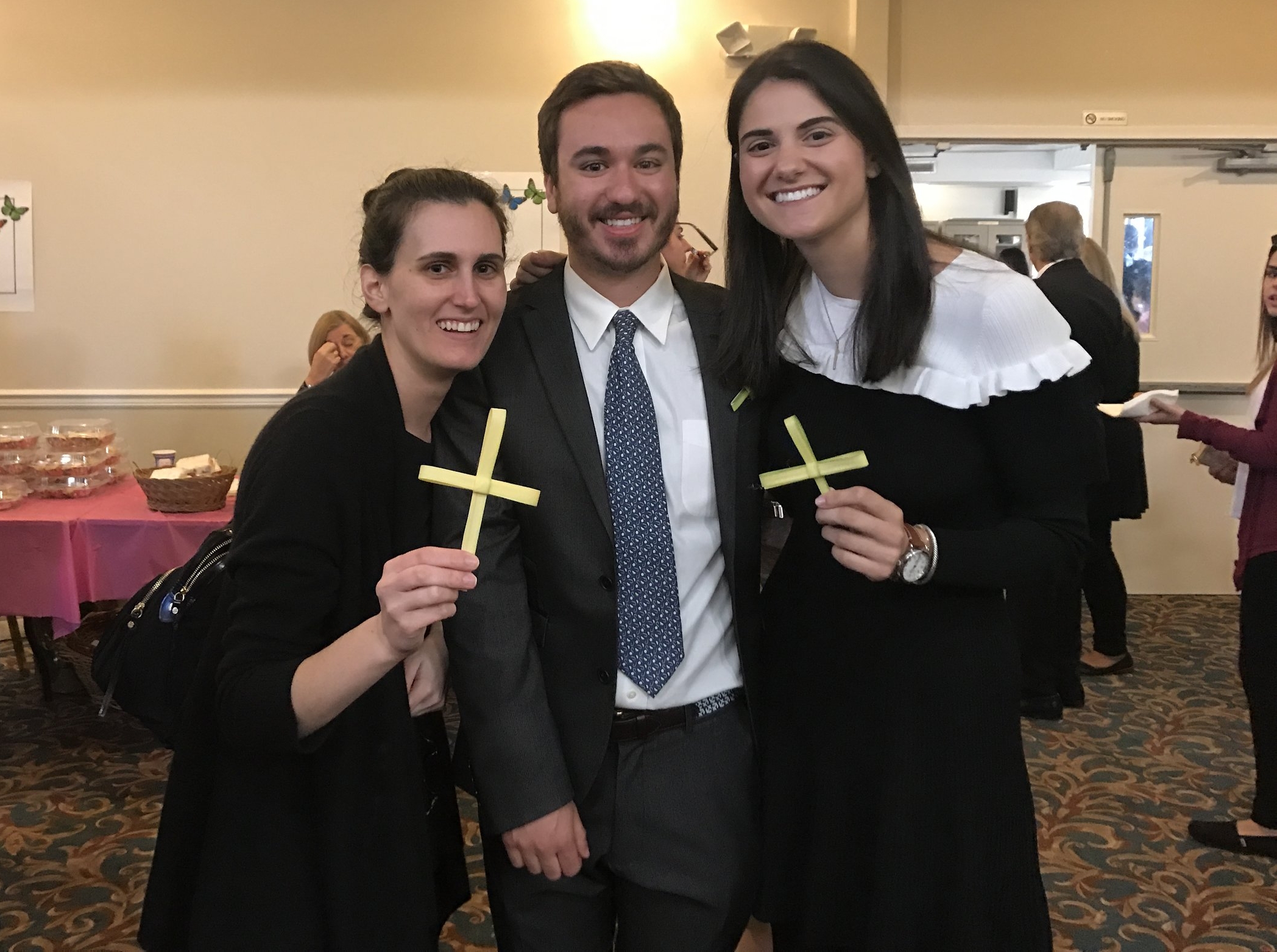Significance of this Service
Source: Goarch.org
"Anointing him sick with oil in the name of the Lord..."
(The Mysterion of Unction)
The sacred ceremony of the Mysterion of the Holy Unction takes place on this Wednesday evening, following an old custom. It is the evening of repentance, confession, and the remission of sins by the Lord, preparing the faithful to receive Holy Communion, usually the next day, Holy Thursday morning. Holy Unction is the Mysterion for cleansing sins and renewing the body and the spirit of the faithful. Holy Unction is one of the seven Sacraments of the Church, and it has its origin in the practice of the early Church as recorded in the Epistle of James (5:14-15). At the end of the service, the priest anoints the people with Holy Oil, the visible carrier of the Grace of God.
